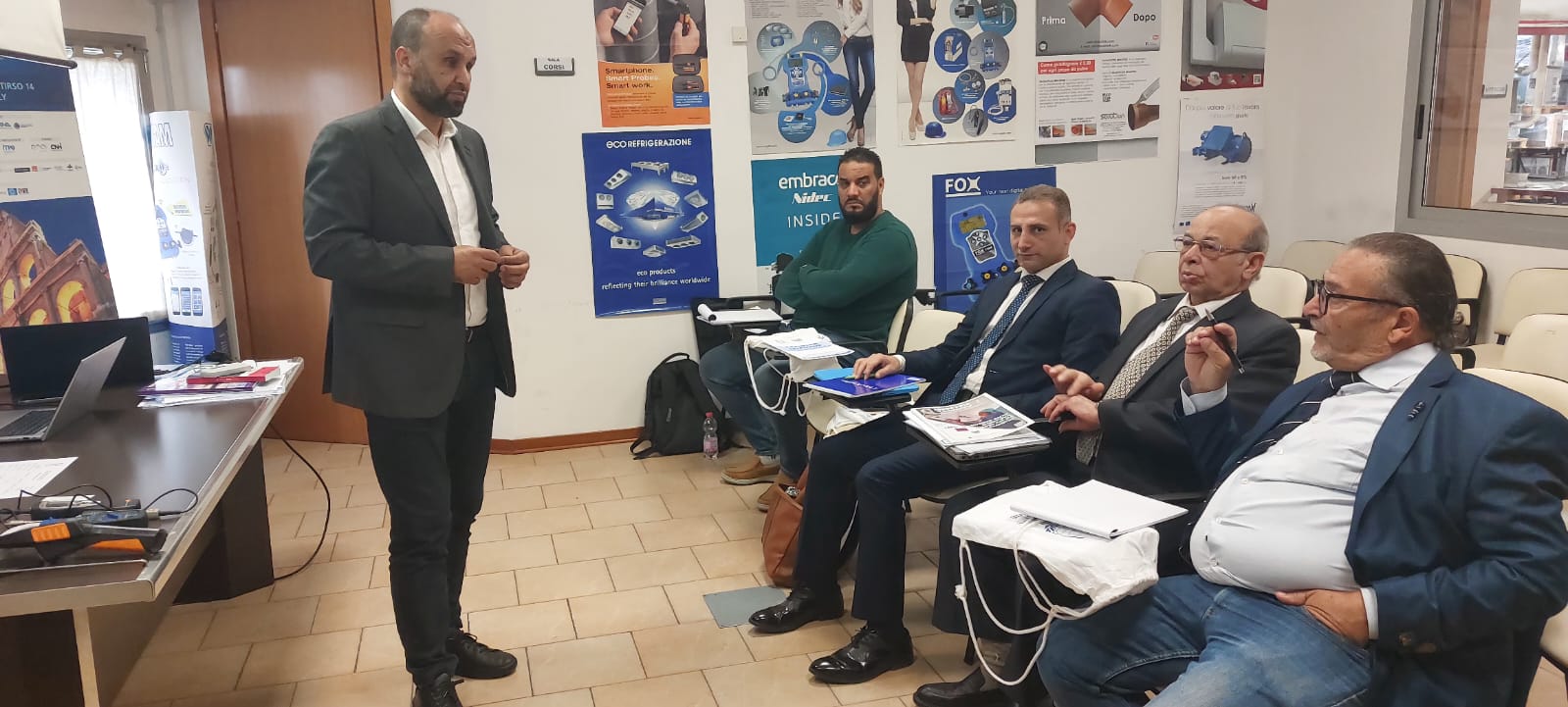Ozone Coordinator Training Session in Bologna - 2nd Cohort
Madi Sakandé, President of U-3ARC and UNIDO Certified Trainer, and Saïd El Harch, Cerified Trainer, F-Gas Certifier & Vice-President of U-3ARC, recently delivered a theoretical and practical training session on "Licensing Systems and Data Communication" from May 6 to 8, 2025, for Ozone Coordinators from Egypt and Libya at the Centro Studi Galileo in Bologna, in collaboration with ATF (Associazione Tecnici Del Freddo) and under the auspices of UNIDO.
Following an initial cohort in early May, New Cold System srl, the logistics headquarters of the Centro Studi Galileo, located in the Emilia Romagna region and the Center for International Training of the Centro Studi Galileo, recently welcomed a group of five Ozone Coordinators from Egypt and Libya for a training session. This training, intended for Ozone Office Coordinators, is a world first.

This time also, the training session, which was delivered in Arabic by Saïd, Vice President of U-3ARC, followed a specific agenda. The session provided participants with a comprehensive understanding of refrigerant management, licensing systems, and compliance strategies.
A rich program
The first day focused on "The Fundamentals of Refrigerants and the Authorization Framework" Divided into two morning sessions (Understanding Refrigerants and Their Environmental Impact) and an afternoon session (Preparing for Effective Licensing Systems), this workshop first focused on "Introduction to the Chemical Composition of Refrigerants, Including ODS and HFCs" and "Explanation of the CO₂ Equivalent Concept and Its Importance for Environmental Policies," before concluding with practical exercises on calculating CO2 equivalent in kilograms of refrigerant.
The afternoon session focused on "Overview of HFC References, Reduction Schedules, and National Strategies under the Montreal Protocol," followed by a discussion on "The Legislative and Administrative Systems Required to Establish Licensing Frameworks," before concluding with "Case Studies on the Successful Implementation of Refrigerant Management Systems." The second day focused on « Licensing and Quota Management Systems ». Divided into two sessions: a morning session (Practical Implementation of Licensing Systems) and an afternoon session (Challenges and Best Practices), this workshop first focused on "A Step-by-Step Guide to Implementing an Import Licensing System, Covering Reference Determination, Regulatory Requirements, Process Implementation, and Operational Management," and "The Role and Importance of Quota Systems in Refrigerant Management," before concluding with an exploration of various quota allocation strategies, including National Quotas and Individual Quotas, the First-Come, First-Served Approach, Allocation and Grandfathering Principles for New Entrants, and Quotas in CO2 Equivalents versus Tonnes. During the afternoon of the 2nd day, which revisited the “Challenges and Best Practices”, the work focused on “Common Challenges in the Design and Implementation of Licensing and Quota Systems”, followed by a discussion on “Practical Solutions and Best Practices to Ensure Compliance”, before concluding with interactive group exercises to develop strategies adapted to national contexts.
At the end of the training session, on day 3, the workshop focused on "Data Reporting, Compliance, and Networking" Divided into two parts, one on "Data Reporting under the Montreal Protocol" in the morning and one on "Compliance Support and Collaboration," the workshop featured sessions on "Detailed Instructions on CP and Article 7 Data Reporting Procedures and Requirements," "Hands-on Training with Reporting Tools and Platforms to Improve Data Accuracy and Timeliness," "Identifying Gaps in Data Collection and Resolving Communication Issues," and then "Analysis of Areas Requiring Additional Action or Support to Meet Compliance Obligations," "Sharing of Knowledge and Experience by the CSG Expert Trainer to Identify Concrete Solutions," and concluding with "facilitated networking sessions to encourage collaboration among participants and establish regional support networks." At the end of this training session, both the trainers and the participants praised this landmark event. They each praised it and hoped that many more would follow. Some expressed satisfaction that the topics covered were timely.
In their opinion, with the arrival of new refrigerants, it is imperative to adapt and comply. Madi Sakandé took advantage of this meeting in Bologna to introduce the Egyptian and Libyan Ozone Coordinators and the pan-African association U-3ARC.
